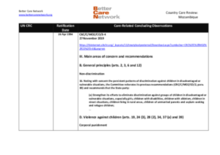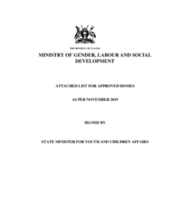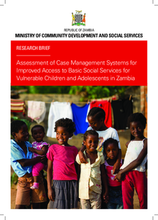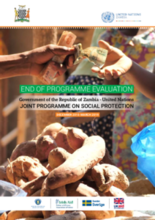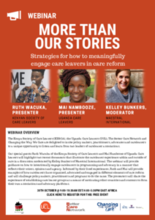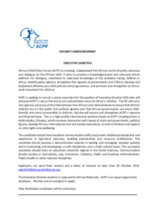Displaying 471 - 480 of 1609
This Country Care Review includes the care-related concluding observations adopted by the Committee on the Rights of the Child, as well as other care-related concluding observations, ratification dates, and links to the Universal Periodic Review and Hague Intercountry Adoption Country Profile.
This paper presents four case studies of participatory educational research in Africa, including the lived experiences of orphaned children and conceptions of education quality in South Africa.
UNICEF is seeking a consultant to support in development of a care reform strategy in the country.
This episode of the podcast Up/Root features interviews with Stephen Ucembe and Ruth Wacuka who both grew up in "orphanages," despite having parents. They share what it was like to grow up in an institution and what they are doing to help end orphanage tourism - and how listeners can join them in their pursuit of justice for families and children.
This document contains a list of alternative care homes in Uganda that have been approved by the Ministry for Gender, Labour and Social Development.
The purpose of this assessment is (a) to review existing case management systems within and in relation to the Ministry of Community Development and Social Services (MCDSS) in Zambia and (b) make recommendations on how case management can be enhanced to ensure more efficient and effective service delivery to vulnerable children and adolescents.
This report details the end of programme evaluation Government of the Republic of Zambia-United Nations Joint Programme on Social Protection as a way of understanding and assessing its operational context and the effect the technical assistance had on the implementation of National Social Protection Policy (NSPP) during the programme’s lifetime.
This webinar - presented by the Kenya Society of Care Leavers (KESCA), the Uganda Care Leavers (UCL), The Better Care Network and Changing the Way We Care - offered policy makers, practitioners, advocates and careleavers a unique opportunity to listen and learn from two leaders of careleaver associations who highlighted two recent documents that illustrate the careleaver experience within and outside of care.
This webinar invites policy makers, practitioners, advocates and careleavers to a unique opportunity to listen and learn from two leaders of careleaver associations.
ACPF is seeking to recruit a senior executive for the position of Executive Director (ED) who will enhance ACPF’s role as the moral and authoritative voice for Africa’s children.

